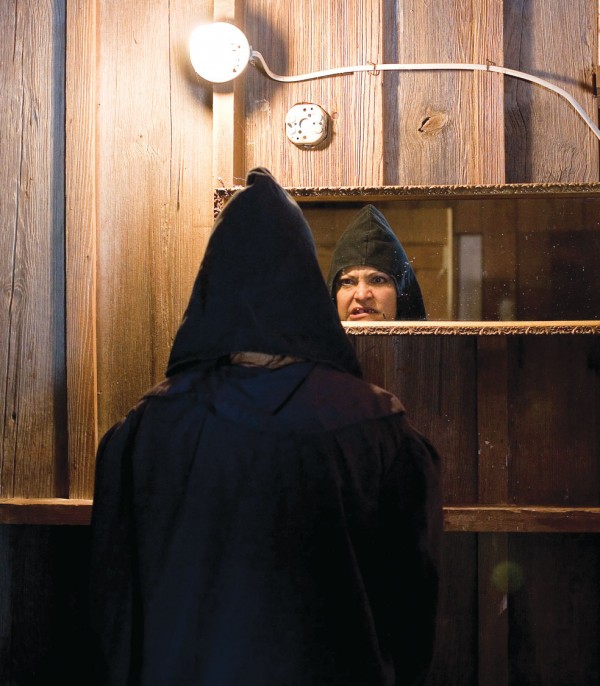The Play’s the Thing
To celebrate the 40th anniversary of the English Department’s Shakespeare at Winedale program, alumni reunited this summer and performed scenes from several of the Bard’s plays.
Among them was Kathryn Blackbird, class of 1984 and 1986. She used a mirror in the century-old hay barn near the idyllic country town of Round Top to prepare for her role as Shadow in Henry IV, Part II.
¿Se habla español o ingles?
Hoping to develop more therapy models for children with language impairment, University of Texas at Austin researchers will conduct a five-year study of speech and language development in bilingual children.
The study will be funded by a $3.3 million National Institutes of Health (NIH) grant. It will track and compare English and Spanish bilingual children whose language skills are delayed with those who have no delays.
“It is unclear how children move from first to second language development and which oral language skills transfer between the two languages,” says psychologist Zenzi Griffin, a researcher for the project. “At the same time, there is a popular myth that exposure to two languages will slow down language learning in children, especially those who have language impairment.”
The study will examine the relationship between learning sounds in words, vocabulary and grammar, to compare performance that stems from linguistic experience with performance that reflects language ability.
Sexual Motivations Revealed
Giving a whole new meaning to the term “cat call,” lascivious middle-aged women known as cougars have become something of a cultural obsession. And new research from the Psychology Department suggests biological motivations for their behavior.
Professor David Buss and his team of graduate students found that women aged 27-45 have a heightened sex drive in response to their dwindling fertility, and are therefore more likely to engage in a variety of sexual activities to capitalize on their remaining childbearing years.
Such “reproduction expediting” includes one-night stands and adventurous bedroom behavior, the research shows.
In the study, the researchers split 827 women into three groups: high fertility (ages 18-26), low fertility (ages 27-45), and menopausal (ages 46 and up). Compared with the other groups, women with low fertility were more likely to experience frequent sexual fantasies, thoughts about sexual activities, a more active sex life and a greater willingness to have one-night stands or casual sex.
“Our findings suggest that women don’t need to necessarily go ‘baby crazy’ in their 30s…. but that, instead, these behaviors manifest in all women with declining fertility,” says Judith Easton, one of the graduate students who conducted the study. “It may be more difficult to conceive past the age of 35, but our research suggests women’s psychology will continue to motivate them to try until menopause.”
